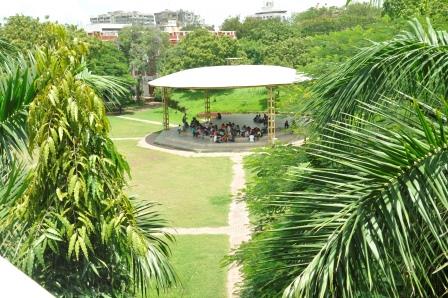- To insightfully develop civil engineering skills with multidisciplinary exposure to compete at global level;
- To promote innovation and technology for serving the society sustainably as an academician, an entrepreneur, a consultant and a researcher;
- To enhance interaction amongst Industries, Institutes, Government Organizations and Alumni and Society.
- To inculcate growth mindset, leadership and develop culture of ethical practice in all walks of life; making student a better citizen.
About Department of Civil Engineering
Degree in Civil Engineering with intake of 76 students, M.E Civil (Town and Country Planning having current intake of 29 students, M.E Environmental Engineering having current intake of 22 students and M.E Civil (Structural Engineering having intake of 29 students)
Faculty Innovations In Teaching And Learning by Civil Engineering Department
Vision
To transform into a center of excellence in education, research and consultancy for civil engineers to serve the needs of myriad disciplines for wellbeing of society.
Mission
Programme Educational Objectives
| PEO1 | To impart profound understanding of civil engineering for developing practically sustainable systems involving sound technical skills to obtain best suitable solution for the society. |
| PEO2 | To develop ability to analyse and design engineering applications through codes of practice, experiments and case study based experiences. |
| PEO3 | To engage in research activities and develop the sense of ethics, leadership, professionalism, creativity, independent thinking and self-confidence. |
| PEO4 | To motivate and promote progressive career based lifelong learning. |
Programme Outcomes
| PO1 | Engineering Knowledge: Apply the knowledge of mathematics, science, engineering fundamentals, and an engineering specialization to the solution of complex engineering problems. |
| PO2 | Problem Analysis: Identify, formulate, review research literature, and analyse complex engineering problems reaching substantiated conclusions using first principles of mathematics, natural sciences, and engineering sciences. |
| PO3 | Design/Development of Solutions: Design solutions for complex engineering problems and design system components or processes that meet the specified needs with appropriate consideration for the public health and safety, and the cultural, societal, and environmental considerations. |
| PO4 | Conduct Investigations of Complex Problems: Use research-based knowledge and research methods including design of experiments, analysis and interpretation of data, and synthesis of the information to provide valid conclusions. |
| PO5 | Modern Tool Usage: Create, select, and apply appropriate techniques, resources, and modern engineering and IT tools including prediction and modelling to complex engineering activities with an understanding of the limitations. |
| PO6 | The Engineer and Society: Apply reasoning informed by the contextual knowledge to assess societal, health, safety, legal and cultural issues and the consequent responsibilities relevant to the professional engineering practice. |
| PO7 | Environment and Sustainability: Understand the impact of the professional engineering solutions in societal and environmental contexts, and demonstrate the knowledge of, and need for sustainable development. |
| PO8 | Ethics: Apply ethical principles and commit to professional ethics and responsibilities and norms of the engineering practice. |
| PO9 | Individual and Team Work: Function effectively as an individual, and as a member or leader in diverse teams, and in multidisciplinary settings. |
| PO10 | Communication: Communicate effectively on complex engineering activities with the engineering community and with society at large, such as, being able to comprehend and write effective reports and design documentation, make effective presentations, and give and receive clear instructions. |
| PO11 | Project Management and Finance: Demonstrate knowledge and understanding of the engineering and management principles and apply these to one’s own work, as a member and leader in a team, to manage projects and in multidisciplinary environments. |
| PO12 | Life-long Learning: Recognize the need for, and have the preparation and ability to engage in independent and life-long learning in the broadest context of technological change. |
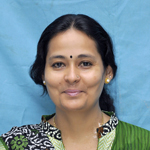
Qualification : Ph. D Civil ( Soil Mechanics & Foundation Engineering)
Designation : Professor
Email : pratima.patel@scet.ac.in, pratima.patel@sarvajanikuniversity.ac.in

Qualification : Ph.D in Civil Engineering (Structural Engineering)
Designation : Professor
Email : jigar.sevalia@scet.ac.in, , jigar.sevalia@sarvajanikuniversity.ac.in
Portfolio : Convener, Consultancy Cell
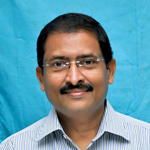
Qualification : ME Civil (Structural Engineering)
Designation : Associate Professor
Email : dharmesh.bhagat@scet.ac.in, dharmesh.bhagat@sarvajanikuniversity.ac.in

Qualification : ME Civil (Town & Regional Planning )
Designation : Associate Professor
Email : himanshu.padhya@scet.ac.in, himanshu.padhya@sarvajanikuniversity.ac.in
Portfolio : P.G. Incharge
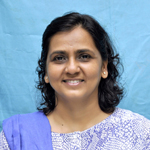
Qualification : M. E (Soil Mechanics and Foundation Engineering)
Designation : Associate Professor
Email : ratna.jadwani@scet.ac.in, ratna.jadvani@sarvajanikuniversity.ac.in

Qualification : Ph.D in civil Engineering (Environmental Engineering)
Designation : Associate Professor
Email : mehali.mehta@scet.ac.in mehali.mehta@sarvajanikuniversity.ac.in
Portfolio : Head Of the Department

Qualification : M. Tech (Soil Mechanics and Foundation Engineering)
Designation : Assistant Professor
Email : khushbu.berawala@scet.ac.in khushbu.gandhi@sarvajanikuniversity.ac.in
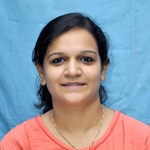
Qualification : M.Tech (EE)
Designation : Assistant Professor
Email : mitali.shah@scet.ac.in mitali.shah@sarvajanikuniversity.ac.in
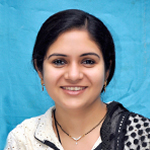
Qualification : M.tech (Urban planning), Ph. D (Pursuing)
Designation : Assistant Professor
Email : sejal.bhagat@scet.ac.in, sejal.patelwala@sarvajanikuniversity.ac.in

Qualification : Ph.D in civil Engineering (Structural Engineering)
Designation : Assistant Professor
Email : minakshi.vaghani@scet.ac.inminaxi.vaghani@sarvajanikuniversity.ac.in

Qualification : M.Tech (WRE)
Designation : Assistant Professor
Email : payal.zaveri@scet.ac.in payal.zaveri@sarvajanikuniversity.ac.in

Qualification : Ph.D in Civil Engineering, M.Tech.(Structural Engineering)
Designation : Assistant Professor
Email : kamlesh.dalal@scet.ac.in, kamlesh.dalal@sarvajanikuniversity.ac.in
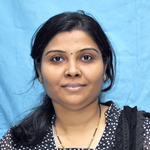
Qualification : M.Tech (EE)
Designation : Assistant Professor
Email : ankita.parmar@scet.ac.in ankita.parmar@sarvajanikuniversity.ac.in
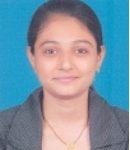
Qualification : M.Tech (EE)
Designation : Assistant Professor
Email : hemali.jardosh@scet.ac.in hemali.jardosh@sarvajanikuniversity.ac.in

Qualification : PhD in Civil Engineering (Water Resource Engineering)
Designation : Assistant Professor
Email : manisha.vashi@scet.ac.in manisha.vashi@sarvajanikuniversity.ac.in

Qualification : Diploma Civil Engineer
Designation : Laboratory Assistant
Email : manisha.sutarwala@scet.ac.in , manisha.sutarwala@sarvajanikuniversity.ac.in
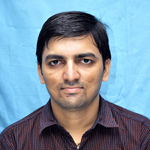
Qualification : Diploma Civil Engineer
Designation : Departmental Personal
Email : girish.kikani@scet.ac.in , girish.kikani@sarvajanikuniversity.ac.in

Qualification : 12th
Designation : Laboratory Attendant
Email : santosh.gayakwad@scet.ac.in

Qualification : 12th
Designation : Laboratory Attendant
Email : jagdish.tadvi@scet.ac.in

Qualification : ITI (Motor Mechanical)
Designation : Laboratory Attendant
Email : atul.patel@scet.ac.in
